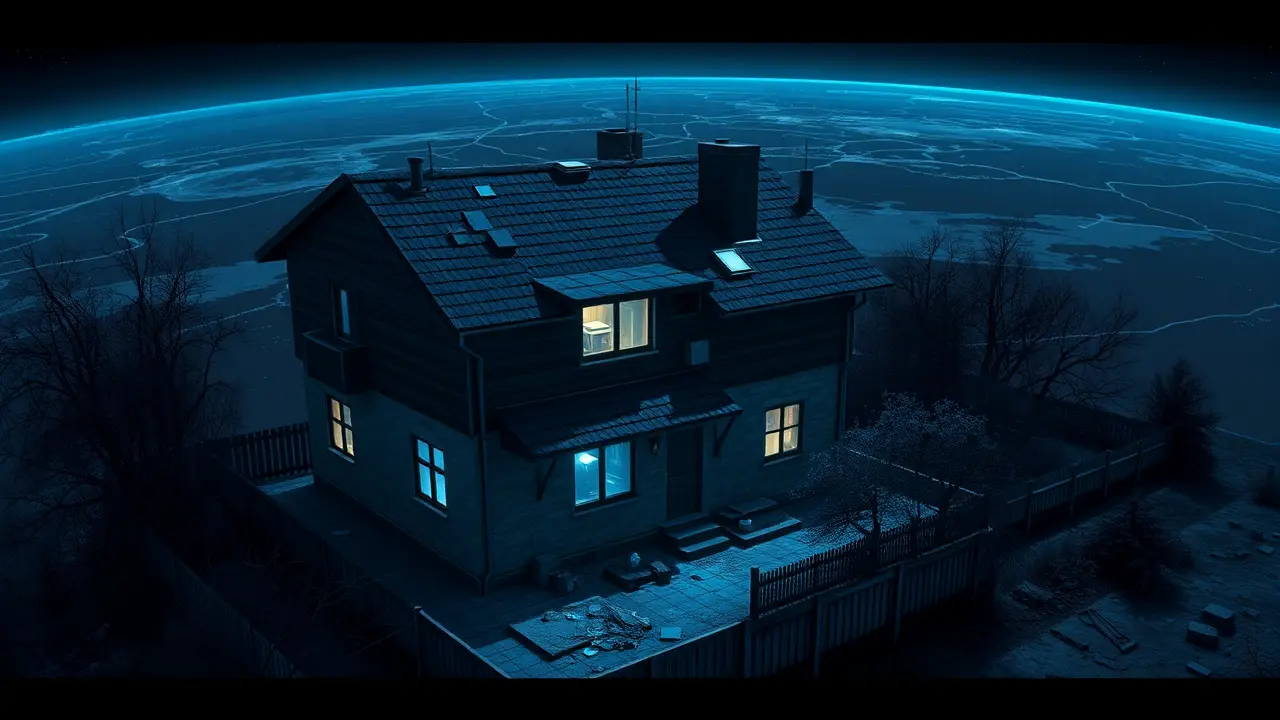BBC Reporter's Childhood Home Now a Russian Military Base.
The satellite imagery is stark, a high-resolution testament to a personal tragedy writ large upon the geopolitical stage: the childhood home of BBC reporter Vitaly Shevchenko, a place once filled with the mundane echoes of family life, now functions as a forward-operating base for the Russian military. This isn't merely a data point on a map; it's a profound symbol of the war's deliberate erasure of identity and history, a tactical annexation of memory itself.From a risk analysis perspective, the repurposing of civilian infrastructure—homes, schools, hospitals—is a calculated move straight from the hybrid warfare playbook, serving a dual purpose. Practically, it provides ready-made shelter and a defensive position woven into the urban fabric, making targeting more complex for opposing forces.Psychologically, however, its impact is far more insidious and devastating. It is a form of psychological warfare designed to sever the populace's connection to their past, to demonstrate that nothing is sacred, that every cornerstone of a community's former life is now a legitimate military asset for the occupying force.One must consider the operational logic: this house, like countless others, was likely chosen not at random, but for its strategic location, its structural soundness, or its symbolic value in demoralizing both the specific individual, Shevchenko, whose reporting from exile clearly stings the Kremlin, and the wider diaspora watching their heritage be cannibalized. The scenario planning implications are chilling.This tactic, while not new, has been industrialized in this conflict, setting a precedent for future territorial disputes where the digital and the personal collide. We can model the cascading effects: the degradation of the Geneva Conventions' spirit regarding civilian property, the long-term impossibility of 'returning home' even after hostilities cease when that home is physically transformed into a fortress, and the weaponization of open-source intelligence (OSINT) itself, where journalists and researchers using commercial satellite data to document war crimes are confronted with the visceral, personal cost of their own work.This single image of a reporter's former home, now bristling with the ephemera of war—perhaps sandbagged entrances, vehicle tracks through the garden, communication antennas on the roof—is a microcosm of the conflict's broader strategy. It moves beyond seizing land to seizing narrative, attempting to overwrite the personal histories of millions with a new, imposed reality of permanent militarization. The long-tail risk is a normalization of this practice, where in future conflicts, the first step of occupation isn't just raising a flag, but biliting soldiers in the bedrooms of those who once lived there, ensuring that even if the land is one day regained, the sense of home is forever lost, a casualty as real as any other.
CY
CynicalObserver11 hours ago
sounds ambitious but i'm curious how this actually works as a long-term strategy tbh, feels like we've seen this playbook before and it never ends well
0
TI
TiredObserver11 hours ago
wow that is just so bleak to think about, like how do you even process that happening to your own home
0
© 2025 Outpoll Service LTD. All rights reserved.
